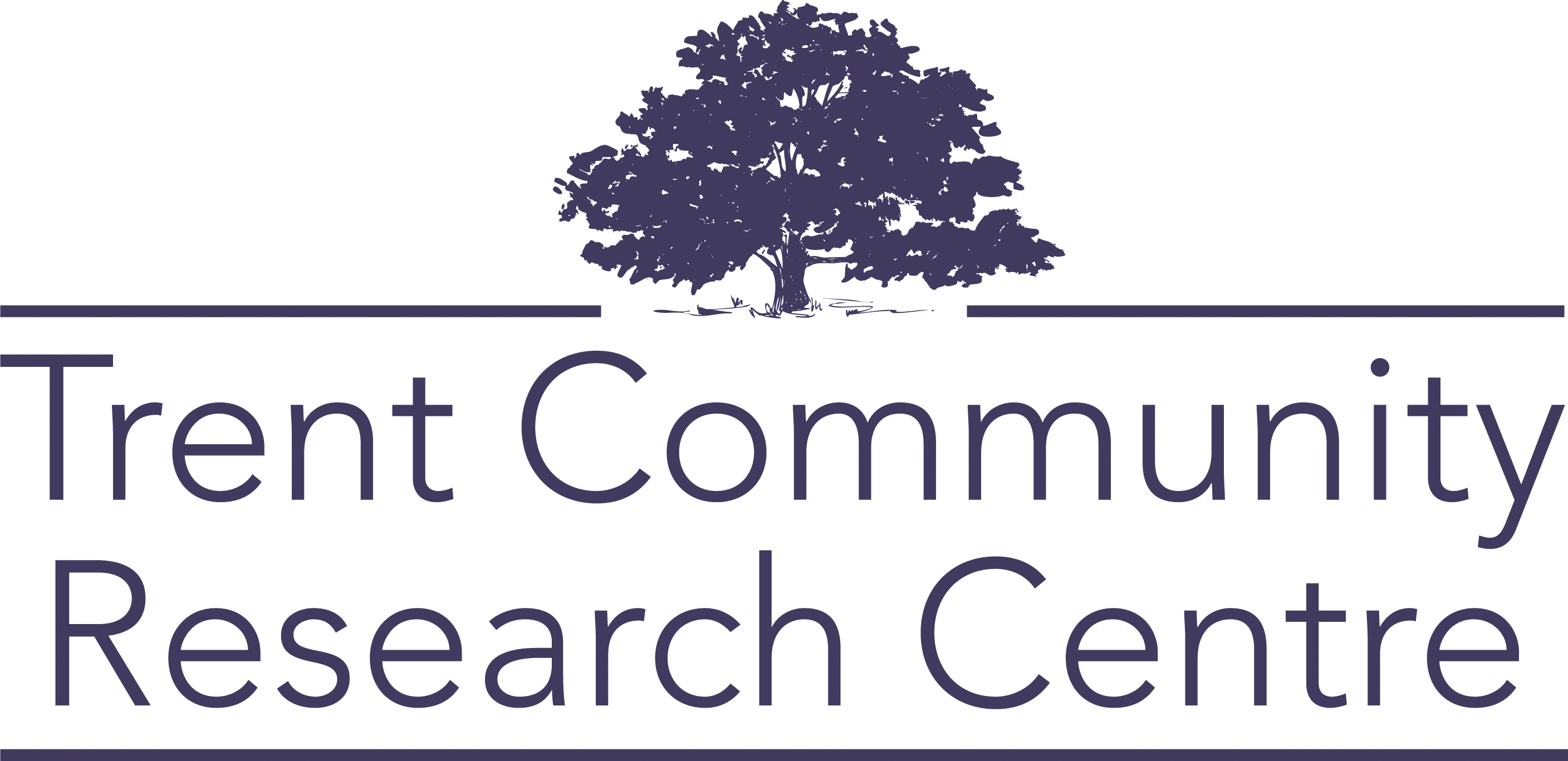We are Now Accepting Applications for 2026!
Below is a list of available projects for Peterborough and the surrounding area. If you are a student researcher and see a project that you are interested in or would like to learn more about, please complete a Student Application Form.
U-Links Centre for Community-Based Research
Also listed below are projects offered by the U-Links Centre for Community-Based Research, which partners students with projects in Haliburton County. For a more up-to-date list, please visit ulinks.ca/available-projects
Please note: Student travel between Peterborough and Haliburton County is provided.
#6462: Baseline Monitoring of Vegetation Communities and Grassland Birds at the Wesleyville Lands

This annual field project focuses on gathering long-term baseline data on the vegetation communities and bird species of the grassland areas of the Wesleyville Lands, primarily owned by Cameco Corporation. Students will conduct standardized vegetation and bird surveys each summer to help evaluate ecological change over time and inform future restoration efforts. Using a combination of fixed-point and random sampling across 20 vegetation plots, the fixed points, data collection methods, and plot sizes will ensure reliable year-to-year comparison, with GPS points recorded for fixed sites to maintain accuracy. Students will also complete fixed-point grassland bird surveys to monitor species' presence, including species at risk. At each point, they will take directional photographs and document all birds detected by sight or sound. These combined datasets will help assess how vegetation structure influences grassland bird use and guide habitat enhancement planning. Overall, this annual monitoring program will create a valuable long-term dataset to support collaborative conservation and restoration within the Wesleyville grasslands.
Sustainable Development Goal(s):



#6461: Restoring Resilience - Growing Goodrich-Loomis
This project will allow Lower Trent Conservation (LTC) to take initial steps and develop a solid plan to restore tallgrass prairie at Goodrich-Loomis Conservation Area. We require assistance researching the planning, preparation, and public outreach components necessary for safe and successful prescribed burn operations. This site has potential to become one of the premier sites to grow and provide native seed to enhance and expand these important habitats.
Sustainable Development Goals(s):




#6459: Developing an Asset Management Plan for the City of Peterborough’s Wetlands and Waterways

This project will lay the foundation for the City of Peterborough’s wetland and waterways valuations, identifying municipal leaders across Canada and best practices for the valuation of wetlands and waterways. Building on a previous community-based research project which identified current municipal leaders in natural asset management planning, and best practices as they apply to wetlands and waterways, the student(s) undertaking this project will interview municipal staff to further explore strategies and considerations for the development of Natural Asset Management Plans for Wetlands and Waterways. They will then use the gathered information to make recommendations for a Plan for the City of Peterborough.
Sustainable Development Goal(s):


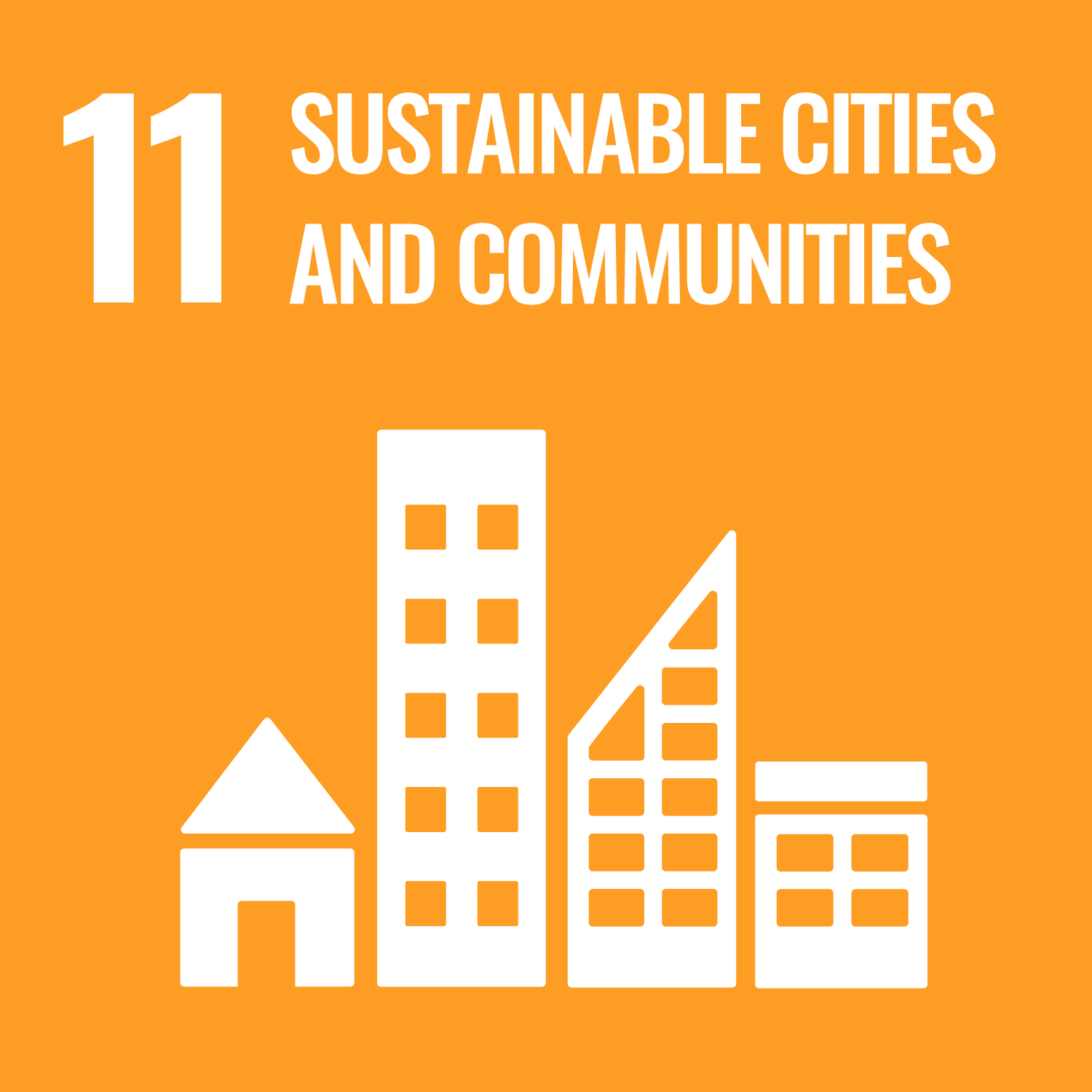



#6458: Building the Foundation: Identifying Best Practices in Municipal Ecosystem Valuation

This project will lay the foundation for the City of Peterborough’s wetland and waterways valuations, identifying municipal leaders across Canada and best practices for the valuation of wetlands and waterways. This should include current approaches and considerations for assessing the value of wetlands and waterways, with consideration of the costs needed to retain ecosystem function through the restoration of existing features and/or the creation of alternative features.
Sustainable Development Goal(s):






#6457: An Assessment of the Stewardship Options for the Needler's Mill Lands and former Community Arena in Millbrook, Township of Cavan-Monaghan

Located in the village of Millbrook, beside the Baxter Creek and its dam is a parcel of municipal land occupied by the Village's historic Needler's Mill, a parking lot and a former Community Arena now deemed structurally unsafe. The Arena is currently being demolished and public park options are being considered. For the benefit of community residents and Council, this project is to provide “in perpetuity” stewardship options for the transformation of the area into a multi use municipal park tentatively named Needler's Common Town Square. Using case studies from Canada and the U.S., the researcher will examine models of urban park stewardship led by not-for-profit groups. The project will also outline the steps for establishing a “Friends of Needler’s Park/Commons/Square” organization, including collaboration with municipal staff and residents through a 25-year stewardship plan. Additionally, it will assess the benefits and costs of not-for-profit status, such as access to fundraising, donations, and grants.
Sustainable Development Goal(s):









#6456: Navigating the Ontario Public Education System when ADHD, Executive Functioning Impairments, and Common Co-morbidities are present

Students with executive functioning impairments, often associated with ADHD, autism, and Fetal Alcohol Spectrum Disorders (FASD), face a higher likelihood of being suspended, expelled, or excluded from the classroom. These students are less likely to graduate from high school or attend post-secondary education, and they are at a greater risk of living in poverty. Additionally, they are more likely to suffer from physical and mental health issues, experience addiction, be incarcerated, be involved in car accidents, and have a shorter lifespan. The goal of this project is to determine whether students' access to accommodations and their educational outcomes improve when their caregivers have a better understanding of the special education system, the Ontario Human Rights Code, and advocacy skills.
Sustainable Development Goal(s):




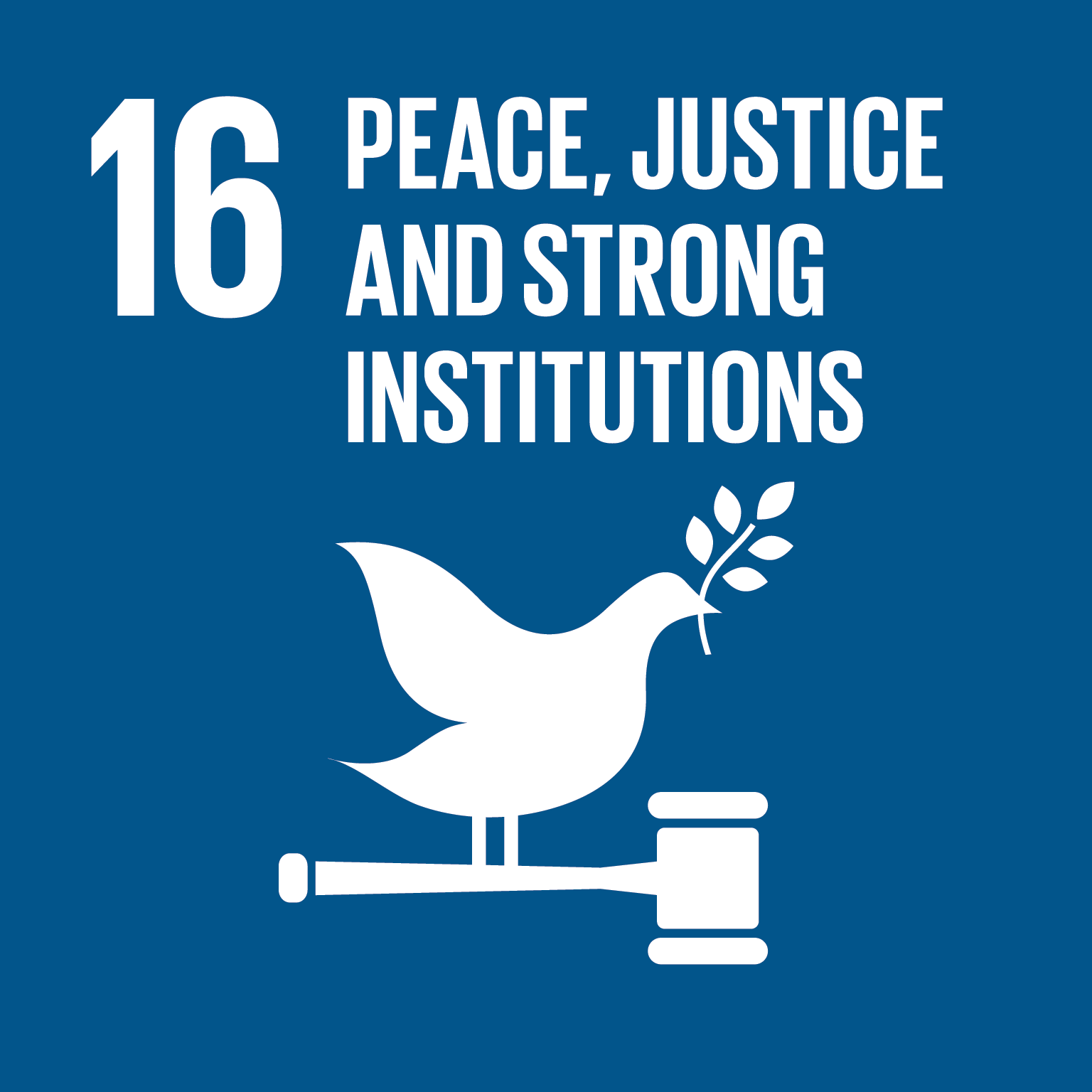

#6455: Talking Trash: Best Practices in Municipal Waste Diversion Across Ontario

Through the completion of a waste audit, Selwyn Township has identified several categories of waste that are not currently being diverted from our landfill. This includes items like bulky plastics, textiles, carpet, and some construction and demolition waste. The Township is looking for assistance in investigating best practices and opportunities that exist for municipalities to divert and recycle these materials. This project would include interviewing other municipalities and industry stakeholders to learn more about existing diversion programs that may be beneficial to Selwyn Township.
Sustainable Development Goal(s):




#6454: Beyond the Bin: Exploring Waste Diversion Strategies to Inform Opportunities in Selwyn Township

Through the completion of a waste audit, Selwyn Township has identified several categories of waste that are not currently being diverted from our landfill. This includes items like bulky plastics, textiles, carpet, and some construction and demolition waste. The Township is looking for assistance in investigating best practices and opportunities that exist for municipalities to divert and recycle these materials.
Sustainable Development Goal(s):




#6453: Understanding Youth Drug Use: A Literature review of consumption methods and supervised services

This project is a literature review examining how young people use drugs, with a specific focus on their preferred methods of consumption. It will explore the use of supervised consumption services by youth and the barriers they face in accessing these resources. By synthesizing existing literature, this project aims to address a gap in our understanding of youth-specific harm reduction needs. The findings will be used to inform and improve harm reduction policies and support services tailored for young people.
Sustainable Development Goal(s):




#6452: Nature-Based Carbon Solutions in Freshwater Wetlands: A Literature Review of Blue Carbon

This research project will broaden our current understanding of “blue carbon” in freshwater wetlands- including methods for estimating carbon fluxes and co-benefits such as biodiversity support. The primary task for the student(s) undertaking this project will be to conduct an in-depth literature review of recent academic research and guidance on how these systems store or reduce greenhouse gases and how those benefits are quantified. Moreover, you will examine how the findings may steer future landscape-management choices at Trent, while gaining meaningful experience in environmental research and policy.
Sustainable Development Goals(s):



#6451: From Soil to Policy: Agricultural Carbon Sequestration and Accounting in Practice

The student(s) undertaking this project will join a meaningful research project focused on advancing sustainable agriculture and climate solutions. As an undergraduate researcher, you will examine research on carbon sequestration in cultivated soils, with an emphasis on regenerative and low-tillage practices, and explore the evolving science behind agricultural carbon accounting. Your primary task will be to conduct an in-depth literature review on how farmland ecosystems store and reduce greenhouse gases, and how these benefits are measured. Additionally, you'll reflect on how these findings can inform future landscape management at Trent, contributing to broader efforts to reduce carbon impacts.
Sustainable Development Goals(s):



#6450: Temperate Forest Carbon Compass: Literature Review for Measurement and Practice

The student(s) undertaking this project will join our research team to explore the vital role of forests in mitigating climate change. As an undergraduate researcher, you will focus on surveying literature related to carbon storage and sequestration in temperate forests, including soil carbon dynamics and monitoring techniques. This project offers a unique opportunity to deepen your understanding of ecosystem-based climate solutions and contribute to innovative strategies for reducing greenhouse gases. Additionally, you'll reflect on how these findings can inform future landscape management efforts, gaining valuable experience in environmental research and policy.
Sustainable Development Goals(s):



#6447: A Longitudinal Analysis of Youth Participants at Dalhousie Youth Support Services

This project offers an opportunity to explore how the needs and characteristics of youth involved with Dalhousie Youth Support Services (DYSS) have evolved over the past 20 years. Using existing program data, the student researcher will analyze trends in participant demographics and offence types to better understand shifts in who is accessing services and why. The findings will help DYSS adapt its programming to meet the changing needs of youth in the community. This project is ideal for students interested in data analysis, youth justice, or community-based program evaluation.
Sustainable Development Goals(s):



#6446: Remembering British Home Children in Manvers Township (FA26)

Between the 1860s and 1930s, more than 100,000 children from Britain were sent to Canada by charitable organizations such as Barnardo’s, Fegan Homes, and the Middlemore Homes. These children—often orphans or from poor families—were promised a better life overseas. This research aims to uncover the history of British Home Children in Manvers Township, where over 100 children are believed to have been placed. Researchers will be tasked with describing the broader home children scheme in Canada. Through access to archival records of census, ship logs, and home records Research and verify the names and lives of Home Children placed in Manvers Township, in the City of Kawartha Lakes.
Sustainable Development Goals(s):


#6445: Remembering British Home Children in Manvers Township (WI26)

Between the 1860s and 1930s, more than 100,000 children from Britain were sent to Canada by charitable organizations such as Barnardo’s, Fegan Homes, and the Middlemore Homes. These children—often orphans or from poor families—were promised a better life overseas. This research aims to uncover the history of British Home Children in Manvers Township, where over 100 children are believed to have been placed. Researchers will be tasked with describing the broader home children scheme in Canada. Through access to archival records of census, ship logs, and home records Research and verify the names and lives of Home Children placed in Manvers Township, in the City of Kawartha Lakes.
Sustainable Development Goals(s):


#6444: Sustainable Winter Management: Reducing Winter Road Salt Use

Students will be asked to take a practical research approach to best winter management practices winter contractors are using, looking at the challenges corporations face with winter maintenance and the overuse of road salt, using real-world examples of snow and ice contractors and the best practices they are implementing (whether training or otherwise), including details of the private organizations they are working with. Taking policy tools and case studies into consideration, students will also explore what contractual language is being used by organizations to ensure road salt is kept to a minimum while ensuring public safety, what policy tools are being used around the world, and develop case studies showcasing organizations who are putting these best practices into action. Students will be asked to write a report and present a summary of their findings.
Sustainable Development Goals(s):


#6428: Identifying and Tracking KPIs for Improved Paramedic Service Delivery

We aim to improve our evidence-informed decision-making by better leveraging data and analytics to enhance the delivery of paramedic services in the district. This project will help identify gaps in our current data and guide the development of tools to support more effective decisions. A key goal is to understand how other small paramedic services track a variety of key performance indicators (KPIs). By exploring different KPIs, we hope to identify which ones we are already tracking and which ones we could begin to monitor.
Sustainable Development Goals(s):






#6422: Fostering Collaborations between Indigenous and Newcomer Communities for Reconciliation in Nogojiwanong
 The New Canadians Centre continues to reflect on the intersections between our commitments to Truth and Reconciliation and our role in helping newcomers settle on lands stewarded by Indigenous Peoples. Despite the increase in information about Indigenous peoples in Canada, we realize that some newcomers face additional barriers to learning about Canada's colonial history and the injustices that Indigenous peoples continue to face today. To address those gaps, we aim to foster relationships and collaborations between Indigenous peoples and newcomer communities to develop year-round educational programming that allows them to connect, learn from, and support each other. Students will inform this project by writing a report and conducting a presentation, drawing from local archives, primary sources, academic articles, and grey literature. We also hope that they can conduct and analyze interviews with staff, newcomers, and Indigenous peoples that are already involved in similar initiatives.
The New Canadians Centre continues to reflect on the intersections between our commitments to Truth and Reconciliation and our role in helping newcomers settle on lands stewarded by Indigenous Peoples. Despite the increase in information about Indigenous peoples in Canada, we realize that some newcomers face additional barriers to learning about Canada's colonial history and the injustices that Indigenous peoples continue to face today. To address those gaps, we aim to foster relationships and collaborations between Indigenous peoples and newcomer communities to develop year-round educational programming that allows them to connect, learn from, and support each other. Students will inform this project by writing a report and conducting a presentation, drawing from local archives, primary sources, academic articles, and grey literature. We also hope that they can conduct and analyze interviews with staff, newcomers, and Indigenous peoples that are already involved in similar initiatives.
Sustainable Development Goals(s):



#6406: An oral history of Peterborough Paramedics and those that came before

Peterborough has had a paramedic or ambulance service for many years; however, no one has ever chronicled the history of that service. However, we do have a dedicated group of retirees and many long service employees who were there for that history and love to tell stories. The goal of this project would be to meet with these retirees and long service members, collect their stories and catalog them into a history of Peterborough County City Paramedic (PCCP) and the ambulance services that existed before the County took over ambulance's services in 2001.
Sustainable Development Goals(s):



#6401: Municipal Responses to CPPS Implementation

This project aims to evaluate how municipalities are responding to the implementation of the Community Planning Permit System (CPPS). The goal is to identify common challenges, successful strategies, and key factors that influence the adaptation process by examining responses in regions where CPPS has been fully implemented (like Guelph) as well as those still in planning or consultation stages (like Peterborough, Innisfil, and Oakville). This study will provide valuable insights into how municipalities manage changes within varied implementation contexts.
Sustainable Development Goals(s):




#6397: Building a Welcoming Community in Peterborough: The Role of Cultural Organizations and Multi-Faith Groups
 This project aims to assess the state of cultural organizations and multi-faith groups in Peterborough, including their development and evolution, and explore the ways that New Canadian Centre can better support the development of these organizations and groups.
This project aims to assess the state of cultural organizations and multi-faith groups in Peterborough, including their development and evolution, and explore the ways that New Canadian Centre can better support the development of these organizations and groups.
Sustainable Development Goals(s):




#6355: Understanding the Neuroscience and Biology Behind Neural Network Therapy® (NNT) as a Therapeutic Modality for Anxiety
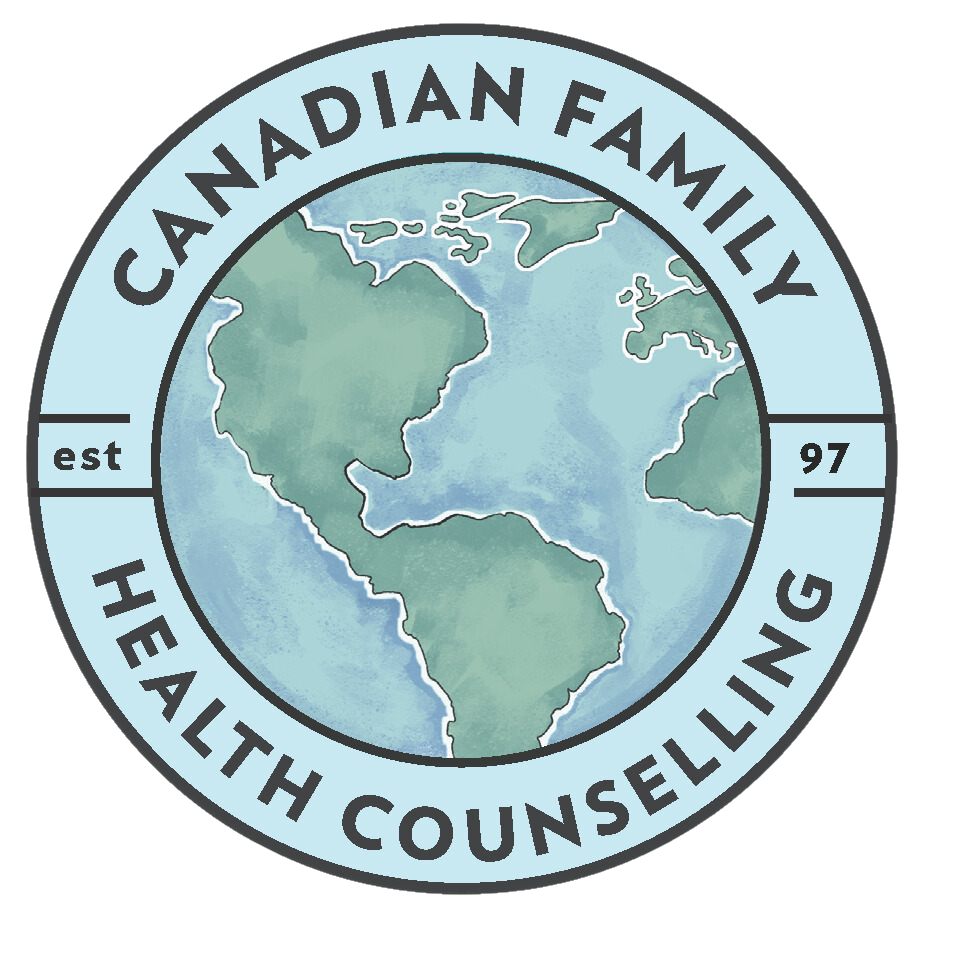 Our project aims to determine the connection between neurobiology impacted by Neural Network Therapy (NNT) and sustained improvements in mental health and well-being. The science of practical exercises, compared to traditional talk therapy increases the longevity of emotional health, and we believe this paired novel NNT application embraces scientific advancements. We are seeking an undergraduate student to conduct research investigating the impact of NNT on rewiring an anxious brain.
Our project aims to determine the connection between neurobiology impacted by Neural Network Therapy (NNT) and sustained improvements in mental health and well-being. The science of practical exercises, compared to traditional talk therapy increases the longevity of emotional health, and we believe this paired novel NNT application embraces scientific advancements. We are seeking an undergraduate student to conduct research investigating the impact of NNT on rewiring an anxious brain.
Sustainable Development Goals(s):

#6354: Understanding the Neuroscience and Biology Behind Neural Network Therapy® (NNT) as a Therapeutic Modality
Our project aims to determine the connection between neurobiology impacted by Neural Network Therapy (NNT) and sustained improvements in mental health and well-being. The science of practical exercises compared to traditional talk therapy increases the longevity of emotional health, and we believe this paired, novel, NNT application embraces scientific advancements while allowing clients to spend less time in NNT compared to traditional therapy. We are seeking an undergraduate student in psychology/social work/forensics or other applicable fields of study to research the effectiveness of NNT and why it outpaces traditional psychotherapy.
Sustainable Development Goals(s):

#6353: Exploring the Neuroscience and Biological Mechanisms Underpinning Neural Network Therapy® (NNT) in Addressing the Mechanisms of Trauma
 Our project aims to determine the connection between neurobiology impacted by Neural Network Therapy (NNT) and sustained improvements in mental health and well-being. The science of practical exercises compared to traditional talk therapy increases the longevity of emotional health, and we believe that this paired, novel, NNT application embraces scientific advancements. We are seeking a biomedical science undergraduate student to research the effectiveness of NNT in addressing trauma, and promoting mental well-being.
Our project aims to determine the connection between neurobiology impacted by Neural Network Therapy (NNT) and sustained improvements in mental health and well-being. The science of practical exercises compared to traditional talk therapy increases the longevity of emotional health, and we believe that this paired, novel, NNT application embraces scientific advancements. We are seeking a biomedical science undergraduate student to research the effectiveness of NNT in addressing trauma, and promoting mental well-being.
Sustainable Development Goals(s):

#6346: Gamiing Nature Centre - Toward Better Times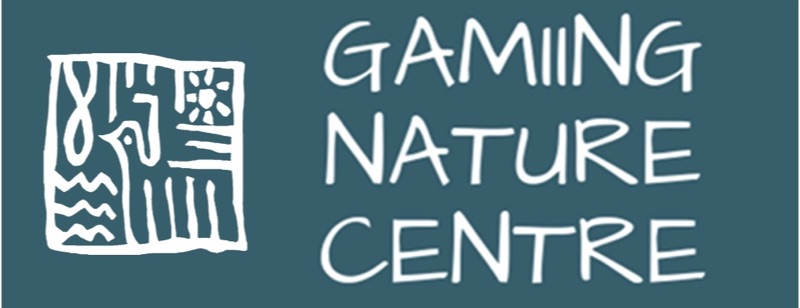
Gamiing Nature Centre is an environmental, non-profit, charitable organization that provides educational programming for the community, protects and enhances their lake ecosystem through restoration initiatives, and supports local biodiversity through their native plant nursery. Students participating in the project will be responsible for conducting a survey within and around our community to identify its current needs, expectations, and priorities. This survey will ultimately assess how Gamiing can better align its offerings with these needs and enhance community engagement.
Sustainable Development Goals(s):







#6329: Innovation Cluster - Data Collection for SME’s working in innovative industries in the region of Peterborough and Kawartha Lakes
Innovation Cluster is collecting regional data for small and medium-sized private and public enterprises (SMEs) operating within the North American Industry Classification System. Specific industries include codes that match the target industries of CleanTech, HealthTech/MedTech, AgriTech, and Digital IT. The student taking on this project will research and develop a database of detailed information about SMEs with 10 to 500 employees. This initiative will ideally boost local economic growth, drive innovation, and promote partnerships within critical sectors.
Sustainable Development Goals(s):




#6325: Communication Audit - Building the Foundation for a Communication Plan
 The Peterborough 360 Degree Nurse Practitioner-Led Clinic seeks student assistance to improve its internal and external communications. Students must use their research, analytical, and interviewing skills to conduct a comprehensive review of all communications activities at the clinic. A student studying communications would be an asset to the team, although this project could also apply to students studying business, policy/political science, or healthcare. This comprehensive review of the organization's internal and external communications will determine the current effectiveness and consistency of communications methods, materials, and processes. . This review would involve in-person interviews, online surveys, and an online review of existing communications materials. Based on the research and review results, students will make recommendations to improve communications with various audiences. This project is remote, requiring some in-person work, with more emphasis on remote research.
The Peterborough 360 Degree Nurse Practitioner-Led Clinic seeks student assistance to improve its internal and external communications. Students must use their research, analytical, and interviewing skills to conduct a comprehensive review of all communications activities at the clinic. A student studying communications would be an asset to the team, although this project could also apply to students studying business, policy/political science, or healthcare. This comprehensive review of the organization's internal and external communications will determine the current effectiveness and consistency of communications methods, materials, and processes. . This review would involve in-person interviews, online surveys, and an online review of existing communications materials. Based on the research and review results, students will make recommendations to improve communications with various audiences. This project is remote, requiring some in-person work, with more emphasis on remote research.
Sustainable Development Goals(s):





#6315: Le Voyageur Outdoor Products - Biological Assessments to Support the Need for a New Improved Insect Protection Garment
Le Voyageur Outdoor Products has designed and manufactured a new, unique and highly effective insect protection garment called “The Tick Suit”. In order to support the marketing a comprehensive and persuasive biological information package needs to be developed to highlight the advantages of the suit. This project focusses on the collection of biological facts, such as tick, mosquito and blackfly anatomy and how their physical strengths and weaknesses can be countered and controlled by the features of the tick suit.
Sustainable Development Goals(s):





#6312: Canadian Family Health Counselling - Understanding the Neuroscience and Biology Behind Neural Network Therapy® (NNT) as a Therapeutic Modality
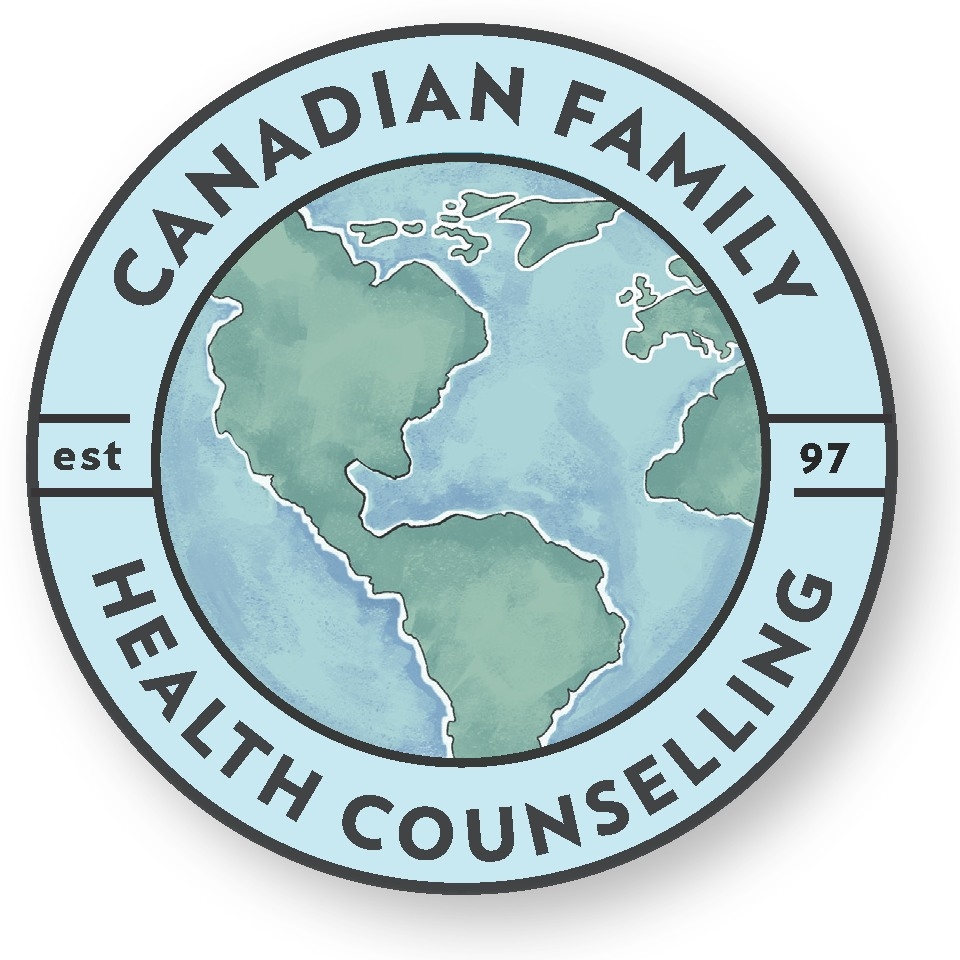 Our project aims to determine the connection between neurobiology impacted by Neural Network Therapy (NNT), and sustained improvements in mental health and well-being. The science of practical exercises compared to traditional talk therapy increases the longevity of emotional health, and we believe this paired novel NNT application embraces scientific advancements. We are seeking an undergraduate biomedical science student to research the effectiveness of key NNT exercises.
Our project aims to determine the connection between neurobiology impacted by Neural Network Therapy (NNT), and sustained improvements in mental health and well-being. The science of practical exercises compared to traditional talk therapy increases the longevity of emotional health, and we believe this paired novel NNT application embraces scientific advancements. We are seeking an undergraduate biomedical science student to research the effectiveness of key NNT exercises.
Sustainable Development Goals(s):

#6310: Green Communities Canada - Best Practices for Engaging and Enabling Community Stewardship for Green Infrastructure Projects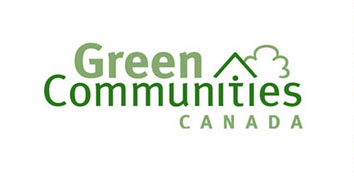
Since 2021, Green Communities Canada (GCC) has advanced green infrastructure in cities and towns across the country through the Living Cities Canada Fund. GCC supports grassroots environmental organizations, helping them to advance urban green infrastructure by introducing projects such as depaving, rain gardens, pollinator patches, and miyawaki-style “mini forests.” GCC is also connected to 30+ community organizations working towards similar goals. This project aims to identify best practices for enhancing citizen stewardship committees, and their structures to support green infrastructure sites. The project also seeks to understand the current stewardship activities conducted by GCC members, and determine effective strategies for engaging community volunteers. Additional goals include identifying methods of incentivizing volunteer participation, and finding ways to ensure the monitoring and maintenance of green infrastructure sites. This project will ultimately help work towards GCC’s overarching goal: promoting long-term sustainability.
Sustainable Development Goals(s):




#6288: JA-NEO Vision 2027 - Fostering a Pathway to Skilled Trades for All Students
 Students will help direct Junior Achievement (Northern and Eastern Ontario Division) to improve their programming, promoting youth engagement in the agricultural and skilled trades sectors. This project will analyze the existing promotional framework and conduct research to help continually improve local programming and advance skilled trades.
Students will help direct Junior Achievement (Northern and Eastern Ontario Division) to improve their programming, promoting youth engagement in the agricultural and skilled trades sectors. This project will analyze the existing promotional framework and conduct research to help continually improve local programming and advance skilled trades.
Sustainable Development Goals(s):



#6280: Brook Trout Restoration in Baxter Creek at Zion Line
 Brook Trout (Savelinus fontinalis) abundance at the Zion Line reach of Baxter Creek is depressed compared with other reaches in the watershed. The primary goal of this project is to restore native Brook Trout populations in the Zion Line reach of Baxter Creek. Early stages of this project will analyze available data from this reach and compare/contrast with accepted research on similar habitats - biological data includes fish community and aquatic invertebrates, and physical data includes morphological habitat measurements. If the early work supports the pursuit of habitat restoration, next steps would include the design of instream and riparian restoration methods. Once a final plan is approved and permitted by necessary agencies, work onsite could be completed by Trout Unlimited members and volunteers, and students engaged in this project.
Brook Trout (Savelinus fontinalis) abundance at the Zion Line reach of Baxter Creek is depressed compared with other reaches in the watershed. The primary goal of this project is to restore native Brook Trout populations in the Zion Line reach of Baxter Creek. Early stages of this project will analyze available data from this reach and compare/contrast with accepted research on similar habitats - biological data includes fish community and aquatic invertebrates, and physical data includes morphological habitat measurements. If the early work supports the pursuit of habitat restoration, next steps would include the design of instream and riparian restoration methods. Once a final plan is approved and permitted by necessary agencies, work onsite could be completed by Trout Unlimited members and volunteers, and students engaged in this project.
Sustainable Development Goals(s):


#6267: Forests Canada - Ontario’s Heritage Tree Program’s Future
Forests Canada is looking for a new ‘host’ for its 14 year Ontario Heritage Tree Program: https://forestscanada.ca/en/program/heritage-tree.
The Ontario Heritage Tree Program has recently been assessed and found to be an important community tree recognition and preservation program in the province. This project aims to identify a qualified, not-for-profit organization capable of hosting the program. A strategic business plan for the Ontario Heritage Tree Program must be created and utilized to find this new host. The plan should incorporate program goals, administrative processes, outreach needs, and long-term financial planning. This plan will be used to connect and engage with new host candidates. Their feedback will be recorded, compared, and assessed with a focus on the needs of the new program host.
Sustainable Development Goals(s):





#6237: Client Mapping for Immigrants and Refugees in NCC's Catchment Area

The students undertaking this project will help to create two catchment area maps (one public-facing and one for internal uses), identifying the distribution of NCC's clients throughout the region. These maps will help NCC better understand the needs of their clients, and the barriers that their clients may be facing, in order to improve service provision and better advocate for clients.
Sustainable Development Goals(s):



#6219: Designing Impactful Programs for Youth on the Margins

The City of Peterborough has recently seen the emergence of two recognized youth gangs, prompting growing concern around how to best support young people at risk. DYSS, an organization that works closely with youth involved in the justice system, continues to serve individuals connected to these groups. This project invites a senior undergraduate student to conduct a research-based study—drawing from academic and grey literature—to explore innovative, evidence-informed practices for supporting youth impacted by gang involvement. The findings will help inform future programming and community responses for at-risk youth in Peterborough.
Sustainable Development Goals(s):



#6214: Women's Mosque of Canada - Expanding Awareness of Honour-Based Violence in Canada - A National Project
 During this project, students will investigate the health and well-being of South Asian women within the context of Honour-Based Violence (HBV), which is prevalent across diverse communities in the GTA and Canada. Our approach is guided by the World Health Organization’s comprehensive definition of Women’s health. South Asian women’s holistic health—encompassing physical, mental, and emotional well-being—is often adversely affected by barriers hindering access to support, especially in the face of HBV. This includes instances of physical, sexual, and emotional violence against women. Through targeted advocacy and educational efforts, we strive to create a supportive environment that fosters health and resilience among South Asian women.
During this project, students will investigate the health and well-being of South Asian women within the context of Honour-Based Violence (HBV), which is prevalent across diverse communities in the GTA and Canada. Our approach is guided by the World Health Organization’s comprehensive definition of Women’s health. South Asian women’s holistic health—encompassing physical, mental, and emotional well-being—is often adversely affected by barriers hindering access to support, especially in the face of HBV. This includes instances of physical, sexual, and emotional violence against women. Through targeted advocacy and educational efforts, we strive to create a supportive environment that fosters health and resilience among South Asian women.
Sustainable Development Goals(s):

#5071: Council for Persons with Disabilities - Insight into Peterborough's Disabled Community
Individuals who identify as having a disability feel that social support is inadequate or inaccessible and, in turn, are far more likely to be socially isolated from their community. Community connection, support, and engagement positively impact personal health and well-being. This connection does not only apply to adults, as the pediatric population has shown strong negative connections between social isolation and mental health. This project intends to bridge the gap between isolated individuals and the community by first identifying Peterborough's comprehensive disabled population, then determining what barriers they experience, and finally brainstorming new initiatives to increase community interactions. The initiatives trialled and feedback collected during this project will help us continue to grow our programs and improve our services.
Sustainable Development Goals(s):




U-Links Centre for Community-Based Research Projects:
Benthic Macroinvertebrate Biomonitoring Projects
(Multiple Projects Available - Visit U-Links website for full list)

Benthic macro-invertebrates (or “benthics” or “benthos”) are aquatic, spineless organisms that live on the bottom of water bodies. Since the late 1980’s they have been used as biological indicators for common aquatic pollutants as they spend part or the entirety of their lives in the water. The use of benthics as an indicator of water quality is now used throughout the world and has been widely used in Ontario since the early 2000’s.
These community-based research projects are ideal for an undergraduate student as a full-term project and will include field work early in the fall. These projects can also be completed in the winter semester, which includes a lab component but no field work. Students are recommended to have OBBN certification or other previous field work experience. These projects are designed to be full year projects, starting in September and ending in April. Projects available for the 2025/2026 academic year include:
- #5039 – Redstone Lake Benthic Assessment - Year 4
- #6061 Upper Stoney Lake Benthic Assessment - Year 4
- #6066 Twelve Mile and Little Boshkung Lakes Benthic Assessment - Year 4
- #6256 Koshlong Lake Benthic Assessment - Year 3
- #6387 Kabakwa Lake Benthic Assessment - Year 5
- #6388 Bob Lake Benthic Assessment - Year 5
- #6389 Grace Lake Benthic Assessment - Year 5
- #6390 Drag and Spruce Lakes Benthic Assessment - Year 1
- #6391 Paudash Lake Benthic Assessment - Year 1
Sustainable Development Goals(s):



#5029: Delineating the Velocity of Climate Change in the Haliburton Highlands for the Haliburton Highlands Land Trust

The Haliburton Highlands Land Trust mandates to “conserve plants, wildlife and clean water of Haliburton County to ensure a legacy of forests, fields and wetlands, and the species they nurture.” The HHLT is acquiring ecological and culturally significant lands for conservation purposes. To manage these landscapes, a science-based approach is required in perpetuity. Analytical landscape evaluation processes and tools are key to HHLT decision-making for new acquisitions, land management, monitoring, and stewardship endeavours.
This project will critically review one available method for estimating the velocity of climate change in the Haliburton Highlands region. This project also seeks recommendations on how HHLT can apply this specific methodology across landscapes, to ultimately work towards its mandate. This is a single-semester project.
Sustainable Development Goals(s):
#5070: Baseline Inventory Report for the Dahl Forest
Habitat loss and degradation are the greatest threats to biodiversity in Canada today. To mitigate this process in the Haliburton Highlands, the HHLT acquires lands of ecological and cultural significance for conservation purposes. Current properties include: The Dahl Forest – 500 Acres, The Barnum Creek Nature Reserve – 500 Acres and associated Conservation Easement Property – 100 Acres, Norah’s Island – 22 Acres, The Smith Forest – 72 Acres, The Fred and Pearl Barry Wetland Reserve – 100 Acres.
The HHLT is responsible for the long term management and conservation of ecological gifts and their ecologically sensitive features. To this end the HHLT is required to, and is responsible for, preparing management plans, setting up stewardship programs and initiating and maintaining monitoring programs for each of its properties. The HHLT’s goal is to establish Permanent Sample Plots (PSP’s) in representative Ecosites on each of the 5 properties. To date, 3 PSPs have been established in the Smith Forest, and 19 PSPs in the Dahl Forest. The project objective is to incorporate data from the previously established PSPs in the Dahl Forest to create a Baseline Inventory Report of the forest. Having a baseline will make room for additional data collection such as vegetation and soil data for each of the PSPs.

Sustainable Development Goal(s):


#5081: Serenity Wetland Assessment
Many of the wetlands in Haliburton County remain unclassified, with their provincial significance unknown. The Serenity Wetland Alliance (SWA), is a volunteer group dedicated to the protection of the Serenity Wetland in Highlands East, ON. The purpose of this project is to gather relevant data and complete an inventory of species present through research and fieldwork, to initiate an Environmental Impact Assessment. The results of this project will promote the awareness of wetlands and their importance, and support other groups and organizations who are considering seeking protections for wetlands in their communities. This project is designed to be conducted in the spring and summer semesters, from May-August.
Sustainable Development Goals(s):
#5094: Underground Greenhouse Feasibility Study for Haliburton County
NOTE: This project can be completed remotely.
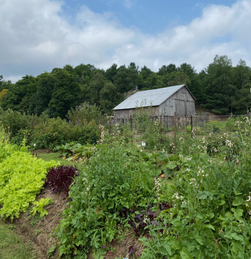
The purpose of this project is to research the feasibility of building an underground greenhouse/walipini for growing food in Haliburton County 12 months a year. The project aims to answer how sustainable features such as fishpond irrigation, geothermal and ceramic wood heat can be integrated into the design, and what innovative, local, or green engineering and construction features can be used? This project would aid in sustainability and self sufficiency for growing food in Haliburton County and provide an ongoing educational component to the area. This project is designed to span one full school term, from September to April.
Sustainable Development Goals(s):




#6059: Seed Bank Feasibility Study of Norah’s Island
NOTE: This project involves a field component. Norah’s Island is a 22-acre pristine island on Kennisis Lake. The seclusion, and limited access to visitors, makes the island an area where old growth trees have not been ravaged by current diseases or disturbed by humans. The purpose of this study is to preserve the local flora for generations to come by completing a seed bank study for Norah’s Island. Students will visit the island to begin collecting seeds and analysing inventory for current plant and tree species. This project is designed to span one school year from April to September.
Norah’s Island is a 22-acre pristine island on Kennisis Lake. The seclusion, and limited access to visitors, makes the island an area where old growth trees have not been ravaged by current diseases or disturbed by humans. The purpose of this study is to preserve the local flora for generations to come by completing a seed bank study for Norah’s Island. Students will visit the island to begin collecting seeds and analysing inventory for current plant and tree species. This project is designed to span one school year from April to September.
Sustainable Development Goals(s):


#6129: Ecologically Aware Gardening Project
NOTE: This project involves a field component.

Founded in 2020 at Haliburton Village's historic Lucas House, the Corner Gallery showcases works by Ontario artists, with a focus on abstraction and modern Canadian landscapes. The Corner Gallery provides a space for works demonstrating traditional methods and skills that help us to see the world around us in innovative and provocative ways. The Corner Gallery is hosting this project regarding the creation of ecologically aware gardens, to determine the benefits of these types of gardens over traditional lawns.
The purpose of this project is to identify ecological impacts of converting traditional lawns/gardens to an ecologically aware garden that features exclusively native plants. The project will compare and contrast these two garden types on variables like macro-invertebrate and soil microbial diversity, plant-pollinator dynamics and hydro-logical processes. The results of this project will be used to benefit the organization by providing information that can lead to furthering environmental awareness, cost savings, community engagement and enhanced biodiversity, and will be used to benefit Haliburton County by identifying the benefits of ecologically aware gardens. Results of this project will be used to inform the general public about the benefits and identified frameworks for establishing an ecologically aware garden in replacement of traditional lawn management practices.
Sustainable Development Goals(s):



#6162: Community Kitchen's Project

The ATIP Haliburton organization was formed to collect information on Haliburton County apple orchards, including old and new varieties and locations. The purpose of this study is the identify organizational, coordination, education, and promotion strategies and structures to increase interest in, and feasibility of, using existing commercial kitchens for procession and preservation of local apple harvests.The student will also identify and list the commercial kitchens that are present in Haliburton County, and canvas those locations as well as apple tree growers to determine interest in this type of social event. Students will also determine which types of products would be most suitable for local apple growers to create through this event, such as pies, pastries and other apple-based products, as well as determining what business's in the county may be interested in selling these locally produced apple products. This project can be completed remotely, and is designed to span a full school term (2 semesters), and is most suitable for a single undergraduate student.
Sustainable Development Goals(s):



#6252: Carbon Stock Assessment Strategy for the Haliburton Highlands Land Trust
NOTE: This project has a field component.
The Land Trust seeks to implement conservation management practices that build climate change resilience, protect lands and waters and maintains biodiversity.
One area of conservation management that is becoming more prevalent is carbon assessment of lands, and particularly those lands that require nature-based conservation solutions for protection. Ontario Nature lists the following benefits of assessing carbon stocks: improving land management, increasing protection, achieving sustainable forestry certification, enhancing public education, informing future research priorities, and potentially attracting financial support for conservation. With this project, the HHLT wishes to explore methods for assessing carbon sequestration in the Haliburton Highlands such as the Highlands Corridor
and the Land Trust’s properties and to make strides towards deciding on a strategy for estimating carbon sequestration and completing a preliminary carbon assessment.
Sustainable Development Goals(s):
#6318: It's All About the Lakes - Benchmarking Haliburton Lake Associations
NOTE: This project can be completed remotely.
Haliburton County is home to over 600 lakes and 50 Lake and Cottage Associations, which play a vital role in the economic, cultural, environmental,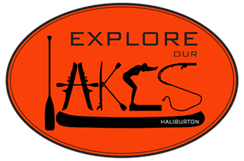 and social fabric of the region. These associations, operated exclusively by volunteers, serve over 15,000 waterfront property owners but often lack the resources to evaluate their effectiveness or compare their programs with best practices from other associations. This project offers a unique opportunity to collect and analyze data through surveys and interviews with Lake Associations to establish benchmarks for planning, programming, service delivery and engagement. Topics may include membership fees, governance models, road maintenance costs, services provided and funding challenges faced by smaller associations. The results will be compiled into a report with actionable insights, supporting Lake Associations in their efforts to enhance their operations and better serve their communities.
and social fabric of the region. These associations, operated exclusively by volunteers, serve over 15,000 waterfront property owners but often lack the resources to evaluate their effectiveness or compare their programs with best practices from other associations. This project offers a unique opportunity to collect and analyze data through surveys and interviews with Lake Associations to establish benchmarks for planning, programming, service delivery and engagement. Topics may include membership fees, governance models, road maintenance costs, services provided and funding challenges faced by smaller associations. The results will be compiled into a report with actionable insights, supporting Lake Associations in their efforts to enhance their operations and better serve their communities.
Sustainable Development Goals(s):



#6335: Evaluating Alternatives to Traditional Fireworks for Lake Associations in Haliburton County

As Lake Associations in Haliburton County face rising costs, stricter bylaws, complex insurance requirements, and growing concerns about environmental impacts and wildfire works, the need for sustainable and community-friendly alternatives to traditional fireworks has become increasingly pressing. This project will explore innovative options such as drone shows, laser displays, and other light-based alternatives, evaluating their feasibility, cost-effectiveness, and acceptance within the community. The study will also include a detailed financial analysis, examination of regulatory compliance, and an assessment of implementation challenges, offering Lake Associations practical insights into transitioning to modern, environmentally responsible celebrations.
Sustainable Development Goals(s):



#6350: Community and Stakeholder Engagement for the Haliburton Highlands Arts Centre Foundation
NOTE: This project has in-person components including surveying/interviewing.
 The purpose of this project is to engage with community members and partners to understand their priorities and gather their insights on expectations around building a new arts centre for the Haliburton Highlands. Results from this project will help develop a community engagement plan, and ensure that future plans and activities are community-centred. Having community members feel heard and valuable will strengthen the feasibility, quality and sustainability of future work.
The purpose of this project is to engage with community members and partners to understand their priorities and gather their insights on expectations around building a new arts centre for the Haliburton Highlands. Results from this project will help develop a community engagement plan, and ensure that future plans and activities are community-centred. Having community members feel heard and valuable will strengthen the feasibility, quality and sustainability of future work.
Sustainable Development Goals(s):


#6352: Gravel to Gardens: Uncovering the Ecological and Industrial History of Abbey Gardens
NOTE: This project has a field component.
This project will explore the historical and ecological transformation of Abbey Gardens, tracing its journey from a natural habitat to an industrial gravel pit and its remarkable rehabilitation into a thriving community space. Through research into land use history, industrial impacts, and features like rock walls and log chutes, the findings will reveal the property's rich narrative. These insights will inform Abbey Gardens' educational programming, interpretive materials, and community management efforts, while also highlighting a model for sustainable land rehabilitation. By preserving this piece of Haliburton County's history, the project will promote ecological and cultural awareness and serve as inspiration for environmental stewardship.
to an industrial gravel pit and its remarkable rehabilitation into a thriving community space. Through research into land use history, industrial impacts, and features like rock walls and log chutes, the findings will reveal the property's rich narrative. These insights will inform Abbey Gardens' educational programming, interpretive materials, and community management efforts, while also highlighting a model for sustainable land rehabilitation. By preserving this piece of Haliburton County's history, the project will promote ecological and cultural awareness and serve as inspiration for environmental stewardship.
Sustainable Development Goals(s):


#6392: Study of the Artificial Bay at Halls Lake Causeway

We are a property owners association, representing 650 property owners in the Big Hawk, Little Hawk, Kennisis River and Halls Lake region. Our mandate is to protect and enhance all elements contributing to the quality of life in our community, including an ecologically sound natural environment. This project will assess the ecological and hydrological impacts of a causeway on Halls Lake installed in mid-20th-century; which transformed an island into a peninsula, leading to the creation of a shallow, vegetation filled bay. The project will gather baseline data on water chemistry, depth, aquatic vegetation and benthic macroinvertebrates in the artificial bay to better understand how altered water flow and habitat succession may be affecting the area. Comparisons will be made with existing water quality and benthic data from other parts of Halls Lake from other U-Links/Woodlands and Waterways EcoWatch program streams, along other data sourced from LPP, MECP/MNRF.
Sustainable Development Goals(s):



#6393: Apple Tree Agro-Forestry in Harcourt Park

This project is an extension of the Apple Tree Identification Project Haliburton (ATIP) and has potential as an agroforestry project with benefits to biodiversity. There is also potential to contribute to the history of this part of Haliburton through research and field investigation of the homestead.The farm is located east of the main body of Harcourt Park in Dysart et al (Harcourt Twp.). We know little about the family: only the name, and that there was a homestead and burial ground and an orchard. Recently a variety of apple unique to Haliburton County has been identified and a research project was mounted to identify sites in the County where it may grow. https://www.appletreeshaliburton.ca/ The Leeson Farm could be one of them as there is a small, old, apple orchard. In addition to being a potential site for Haliburton Apple, the parent project is looking for sites where propagated “Haliburton Apples” could be grown and with management of the encroaching forest, this could be a good agroforestry project. This is a unique opportunity to maintain a sliver of biodiversity that we are slowly losing as pines and spruce take over the 200-year old pastures. The native blueberries and black raspberries are only a shadow of what they were in 1960 and it has long been an objective to clear away some of the young occupying forest. The potential to recreate the orchard (once a popular spot for black bears) is a unique one and consistent with the HP Forest Management Plan.
Sustainable Development Goals(s):



#6394: Identifying Septic-Safe Products: A Chemical and Market Scan in Cottage Country

This project aims to identify household and personal care products that are septic-safe and environmentally preferable, emphasizing commonly used products in cottage/residential settings in Haliburton County. The student(s) will analyze environmental and infrastructural impacts of harmful ingredients and offer safer alternatives by chemical profile and by commonly available brand names. A key part of the process will involve walking through typical household plumbing access points (kitchen sink, bath/shower, laundry, toilet, etc.) and assessing real world usage. Final outputs must prioritize clarity and public accessibility.
Sustainable Development Goals(s):


#6407: Lake Capacity Study of Koshlong Lake

This project will revisit the Koshlong Lake’s ‘at capacity’ designation, exploring how modern development patterns such as densification, short-term rentals, and increased year-round use impact lake capacity, water quality and local biodiversity. The study will identify measurable indicators of waterfront development to determine the impact on water quality. Indicators will include shoreline composition/naturalization, nutrient loading, recreational activity, etc. and will be used to provide actionable recommendations for maintaining sustainable development practices, contributing to the Koshlong Lake Association’s renewed lake plan.
The research will: Examine the rationale, assumptions and definitions underlying Koshlong Lake’s ‘at capacity’ designation from the 1970s, Investigate key stressors on the lake, such as increased number and size of buildings on properties, landscaping practices, year-round property use, changing patterns of boating, septic system impacts (including maintenance and upgrades), and biodiversity shifts, Analyze historical lake data and compared with current development trends via recent data (LPP, WWEW, etc.), Investigate key stressors on the lake, such as increased number and size of buildings on properties, increased use of properties beyond the summer season, changing patterns of boating, septic system maintenance and upgrades, and biodiversity shifts, Identify metrics to assess the impact on the lake, including water quality and development indicators, Collaborate with other Highlands East lakes facing similar concerns to contextualize findings regionally*
Sustainable Development Goals(s):



#6410: Sustainable Community-Led Aging Initiatives: Case Study of Aging Together As Community in Haliburton County

Aging Together As Community (ATAC) is a grassroots initiative based in Haliburton County committed to creating supportive, inclusive, and sustainable opportunities for residents to age in place. The organization fosters peer-to-peer networks, working groups, and community-based events that enhance social connection, knowledge sharing, and collaborative problem solving related to aging well in a rural community. The project will support ATAC in identifying strategies to expand community engagement, strengthen organizational partnerships, and build financial sustainability for long term impact. The project will also analyze comparable initiatives in rural settings to identify best practices for community led aging programs and sustainable operations.
Sustainable Development Goals(s):



#6413: Study of Growing Domes in Haliburton County

This project seeks to examine the viability of year-round indoor growing in Haliburton County, using an existing geodesic Arctic Dome as a pilot case. The student(s) will conduct a feasibility study for how these types of (cold climate) grow domes can be scaled or replicated across the region, improving food production. This project will:
Investigate need for increased year round access to (fresh, affordable, local) produce in Haliburton County
Identify barriers and opportunities related to growing domes
Conduct a Feasibility/PESTLE (Political, Economic, Social, Technological, Legal, Environmental) analysis of building and sustainability related to growing domes,
outline funding opportunities, community partnerships, outreach strategies to support future dome projects or green infrastructure.
Sustainable Development Goals(s):



#6415: Study of Municipal Green Waste Biodigester in Haliburton County

This project will assess the feasibility of introducing a community-scaled biodigester to Haliburton County that can process green and food wastes from household, restaurant, health care facilities, etc. sources. The proposed system would both divert organic waste from landfills (reducing emissions and leachate) but can also create usable byproducts (biogas, digestate) [1]. The project will: Conduct a feasibility/PESTLE (Political, Economic, Social, Technological, Legal, Environmental) analysis on implementing a biodigester in rural setting, Identify best practices and existing models of community-scale digesters suitable for Haliburtons resources and conditions, Investigate policy frameworks and funding incentives for this technology in Haliburton County, Engage with stakeholders to assess local needs and barriers 1. https://www.mdpi.com/2673-8007/4/1/29
Sustainable Development Goals(s):




#6415: "The Missing Element" - Stories of the Mountain St. Red Cross Outpost

The Canoe FM/Haliburton Highlands Land Trust are non profit organizations working out of a historic building on Mountain Street in Haliburton that was once a Red Cross outpost. A small 1983 book by Martha Perkins, “A Hospital of our Own”, was written about its history. The purpose of this project is to discover more about the building and the health professionals who worked there in order to develop a better understanding of the hospital’s connection to history and its contributions to the local community. Existing data will be augmented through oral history interviews and a visual media display. A focus on collecting oral history will help employees, visitors and community members develop a better understanding and appreciation of the specific times, people and events that took place in the building space, and give insight into how the services of the outpost impacted the community. The visual materials created as part of the project will help make the space more inviting to people who work at and visit Canoe FM
Sustainable Development Goals(s):



#6416: Green Burial in Haliburton County - Exploring Local Options

The purpose of this project is to explore the environmental and social implications of different post-death disposition methods – specifically traditional burial, cremation, and green / natural burials. The study will examine how these methods are viewed locally, how they are communicated to the public, and how cemetery bylaws, policies and infrastructure in Haliburton County can accommodate more sustainable burial options. The project will also draw on case studies from other regions to assess how alternative burial models could be adapted locally.
Sustainable Development Goals(s):






